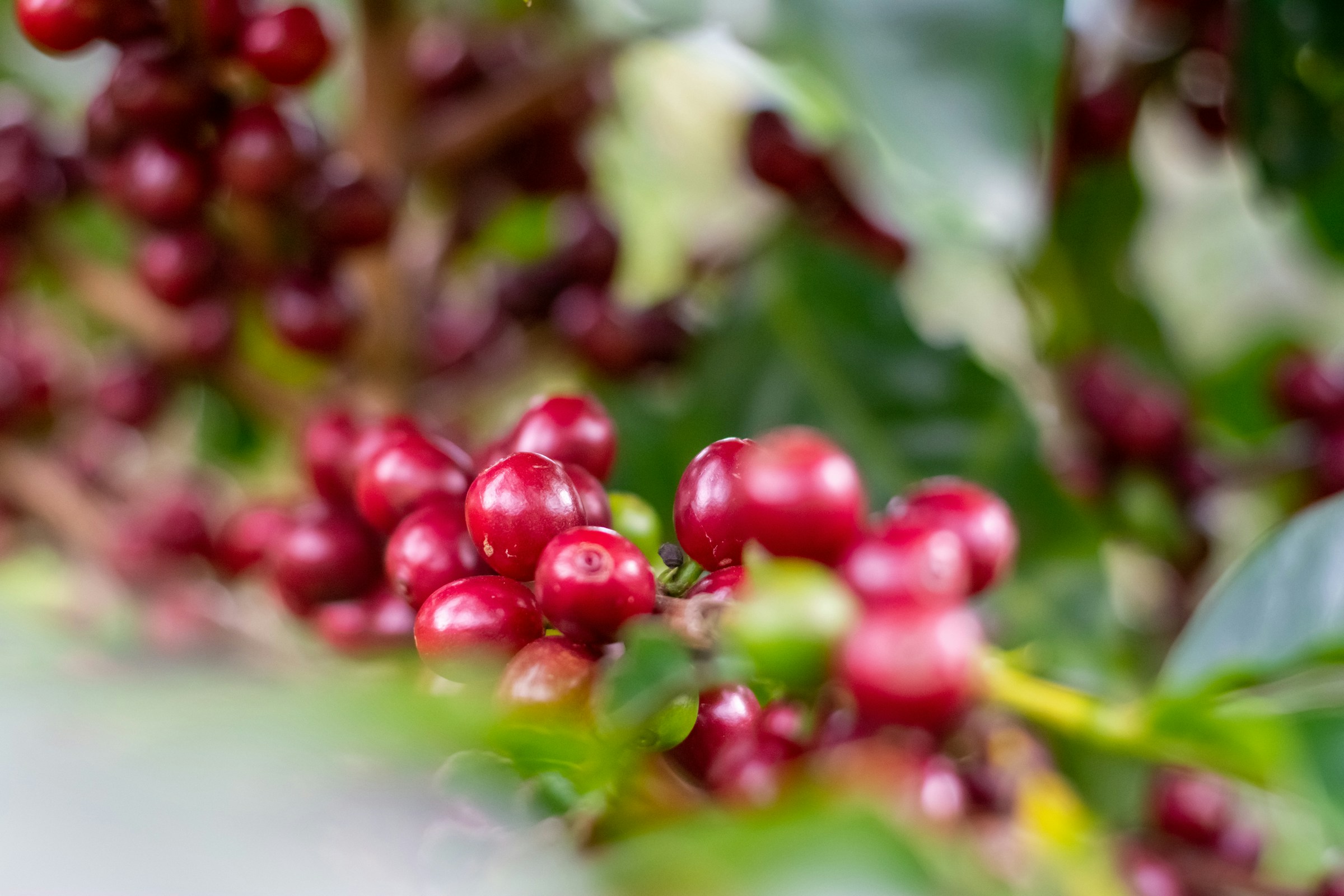Direct trade coffee is changing how we enjoy our favorite brew.
By cutting out middlemen, it connects roasters directly with coffee farmers.
This direct connection ensures farmers get fair pay and helps roasters secure high-quality beans.
Coffee enthusiasts love it for the ethical sourcing and rich flavors.
The demand for direct trade coffee is growing, and more people are appreciating its benefits.
Let’s look at what makes direct trade coffee so special and why it’s becoming a favorite among coffee lovers.

What is Direct Trade Coffee?
Direct trade coffee is a sourcing model where coffee roasters buy directly from coffee producers.
This means no middlemen are involved. Instead, roasters and farmers negotiate quality and pricing directly.
This direct connection helps ensure that farmers receive fair compensation for their coffee.
In direct trade, the focus is on building strong, long-term relationships.
Roasters often visit the farms to understand the production process better. This helps maintain high quality standards and ensures transparency.
Farmers benefit by receiving prices that are usually above market rates, providing them with a more stable income.
This model also emphasizes sustainability.
By working closely with farmers, roasters can support eco-friendly farming practices.
This not only helps the environment but also improves the quality of the coffee.
In short, direct trade coffee is about creating a transparent, fair, and sustainable connection between coffee producers and roasters.
It benefits everyone involved, from the farmers to the consumers.
History and Origin
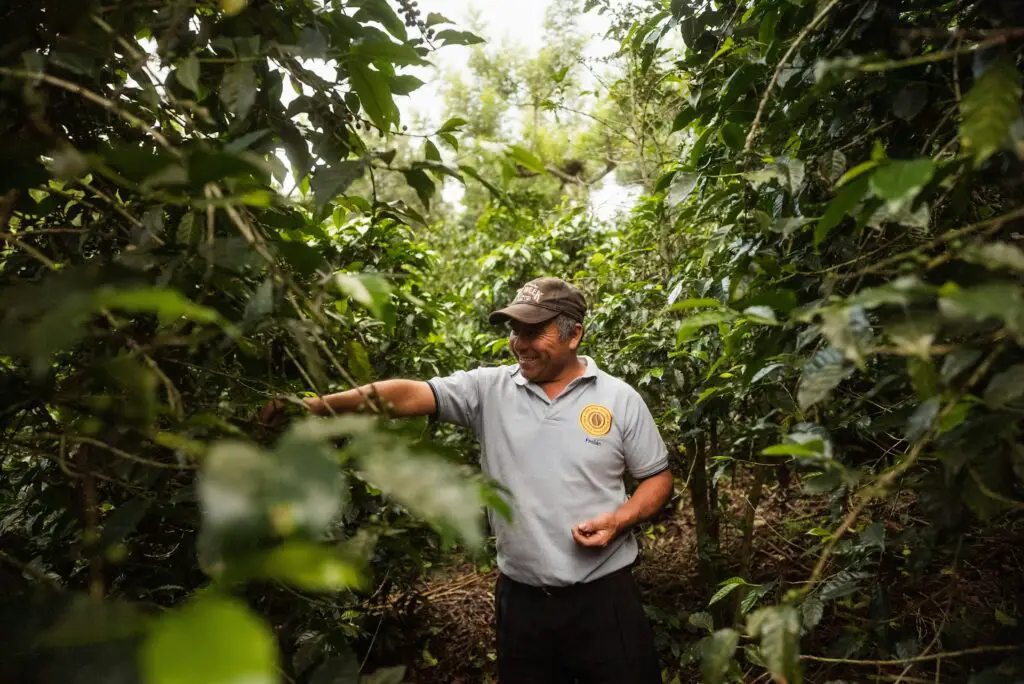
Direct trade coffee began as a response to the traditional coffee market’s complexities and inequalities.
In the early 2000s, several innovative companies decided to create a more transparent and fair trading system.
Among the pioneers were Intelligentsia, Stumptown Coffee Roasters, and Counter Culture Coffee.
These companies aimed to build direct relationships with coffee farmers.
They traveled to coffee-producing regions, met with farmers, and established long-term partnerships.
The goal was to ensure fair compensation and to improve coffee quality.
Intelligentsia was one of the first to adopt this model.
They focused on paying above-market prices for high-quality beans.
This approach helped farmers invest in their farms and communities.
These pioneering companies set the stage for a broader movement.
Today, many roasters around the world follow the direct trade model.
They continue to build on the principles of fairness, transparency, and quality established by the early adopters.
Key Principles of Direct Trade Coffee

Transparency and Traceability
Transparency and traceability are fundamental to the direct trade coffee model.
These principles ensure that everyone involved in the coffee production process can see exactly how the coffee is grown, harvested, and sold.
Ensuring Visibility into the Coffee Production Process
One of the main goals of direct trade is to provide clear visibility into the entire coffee supply chain.
This means roasters and consumers can trace the coffee beans back to the specific farm where they were grown.
Transparency allows roasters to know the exact payment to farmers, ensuring fair compensation.
Direct trade roasters often visit the farms regularly.
These visits help them understand the conditions and methods used in coffee production.
By seeing the process firsthand, roasters can ensure that quality and ethical standards are met.
Building Trust and Accountability

Transparency builds trust between farmers and roasters.
When farmers know they are being paid fairly, they are more likely to maintain high standards.
Roasters can hold farmers accountable for the quality of their coffee, and farmers can trust that they will receive fair compensation for their work.
Detailed Record-Keeping
Detailed records are kept at every stage of the coffee production process.
This includes information about the farm, the harvest, and the sale of the coffee beans.
These records provide a clear trail that can be followed to verify the origins and quality of the coffee.
Benefits to Consumers
For consumers, transparency means they can enjoy their coffee with confidence.
They know that their coffee has been ethically sourced and that the farmers have been paid fairly.
This knowledge enhances the overall coffee experience and fosters a deeper connection between consumers and producers.
Sustainability
Sustainability is a cornerstone of the direct trade model.
It focuses on promoting environmental responsibility and sustainable farming practices.

Environmental Responsibility
Direct trade roasters often work with farmers to implement eco-friendly practices.
This includes reducing the use of harmful chemicals, managing water resources effectively, and protecting local biodiversity.
Sustainable farming practices help maintain healthy ecosystems, which are vital for producing high-quality coffee.
Community Benefits
Sustainable practices also benefit local communities.
By investing in long-term relationships, roasters can support community projects that improve living conditions.
This can include building infrastructure, improving education, and providing healthcare.
Such initiatives help create a stable and prosperous community, which in turn supports better farming practices.
Long-Term Viability
Focusing on sustainability ensures the long-term viability of coffee farming.
By maintaining healthy soil and ecosystems, farmers can continue to produce high-quality coffee for years to come.
This stability benefits both farmers and roasters, ensuring a consistent supply of quality coffee.
Fair Compensation
Fair compensation is a key principle of direct trade.
It ensures that farmers receive higher prices and a more stable income.
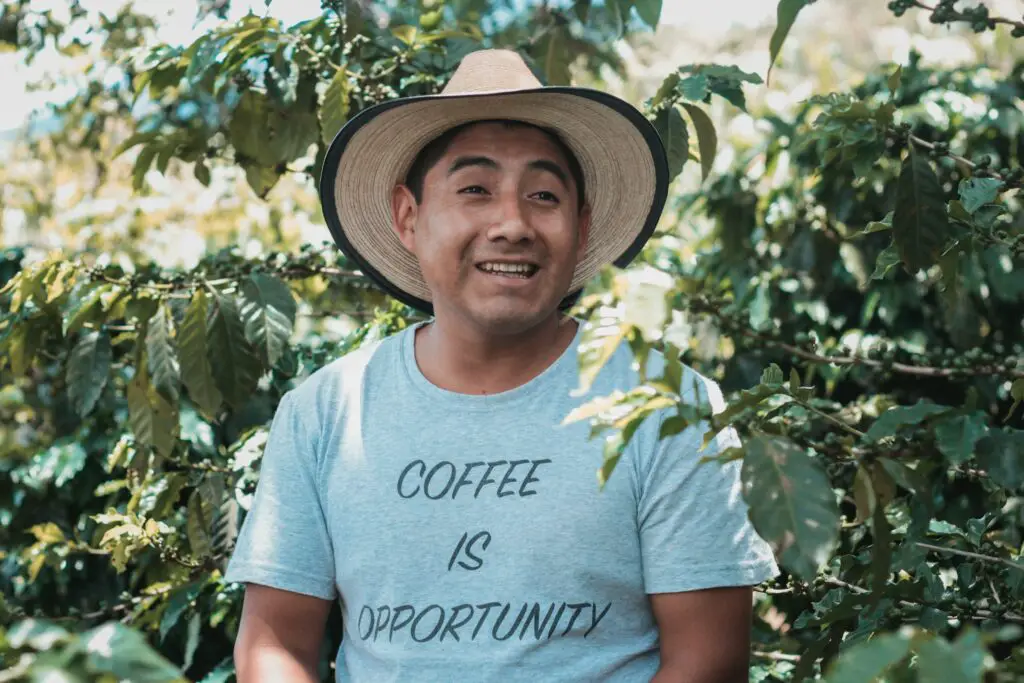
Above-Market Prices
Direct trade roasters typically pay farmers above-market prices for their coffee.
This higher compensation helps farmers cover their production costs and invest in their farms.
It provides financial security and encourages farmers to maintain high quality standards.
Stable Income
By establishing long-term contracts, direct trade provides farmers with a more stable income.
This stability allows farmers to plan for the future, make improvements to their farms, and support their families.
It reduces the financial uncertainty often associated with traditional coffee trading.
Economic Empowerment
With a stable and fair income, farmers can invest in better equipment, training, and sustainable practices.
This leads to improved coffee quality and a better standard of living for the farmers and their communities.
Quality Control
Quality control is a crucial aspect of direct trade coffee.
It involves close collaboration between roasters and farmers to maintain high standards.
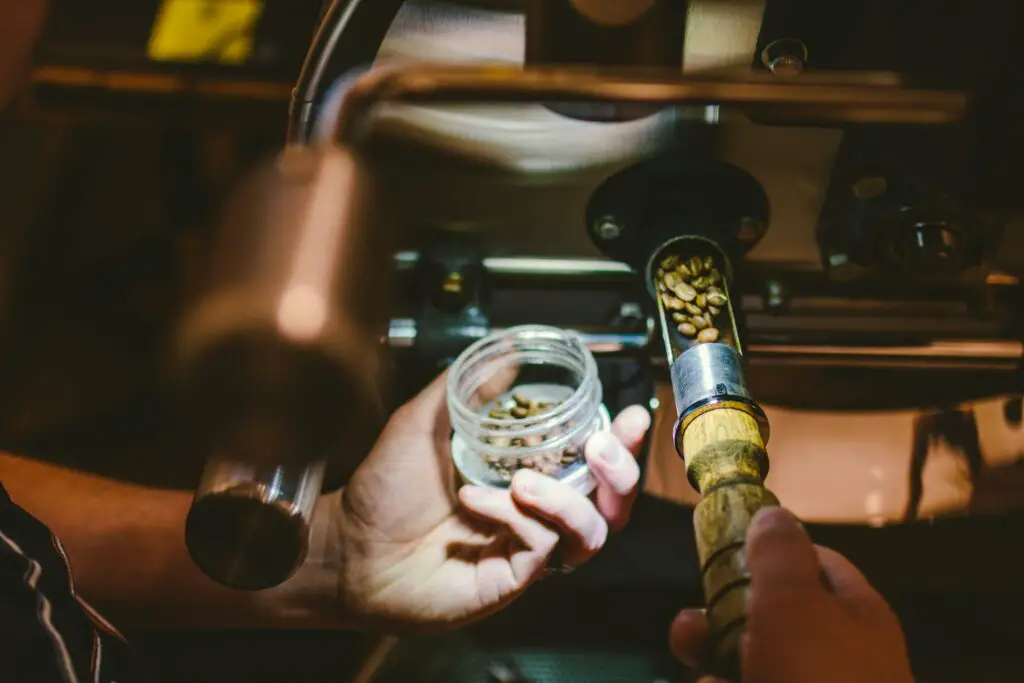
Direct Collaboration
As mentioned earlier, Roasters and farmers work closely together to ensure the coffee meets specific quality standards.
This collaboration includes regular farm visits, ongoing communication, and shared knowledge.
By working together, they can address any issues that arise and continuously improve the coffee quality.
Customized Standards
Direct trade allows for customized quality standards tailored to the specific farm and coffee type.
Roasters can set precise requirements for growing, harvesting, and processing the coffee.
This level of detail helps produce unique and high-quality coffee profiles.
Feedback and Improvement
Roasters provide direct feedback to farmers about the coffee quality.
This feedback loop helps farmers understand what is expected and how they can improve.
Continuous improvement is encouraged, leading to higher quality coffee over time.
Challenges of Direct Trade Coffee
Market and Price Volatility
One of the main challenges of direct trade coffee is dealing with market and price volatility.
Coffee prices can fluctuate significantly due to factors like weather conditions, crop diseases, and global market dynamics.
This volatility poses a risk to both farmers and roasters.
Farmers may struggle with planning and budgeting when prices drop unexpectedly, while roasters might face difficulties in maintaining stable costs and prices for their products.
Quality Assurance Issues
Maintaining consistent quality can be challenging in direct trade relationships.
Despite the close collaboration between farmers and roasters, factors such as environmental changes, varying farming practices, and differences in processing methods can impact the quality of coffee beans.
Ensuring that every batch meets high standards requires continuous effort and communication.
Any lapse in quality can affect the reputation of both the farmer and the roaster.
Bureaucratic and Logistical Challenges
Managing direct relationships can increase bureaucratic and logistical complexity.
Establishing and maintaining direct trade partnerships involves more paperwork and coordination than traditional coffee sourcing methods.
Roasters may need to handle import regulations, customs procedures, and transportation logistics.
This added complexity can be time-consuming and requires careful planning and management to ensure smooth operations.
Direct Trade vs. Fair Trade
Fair Trade
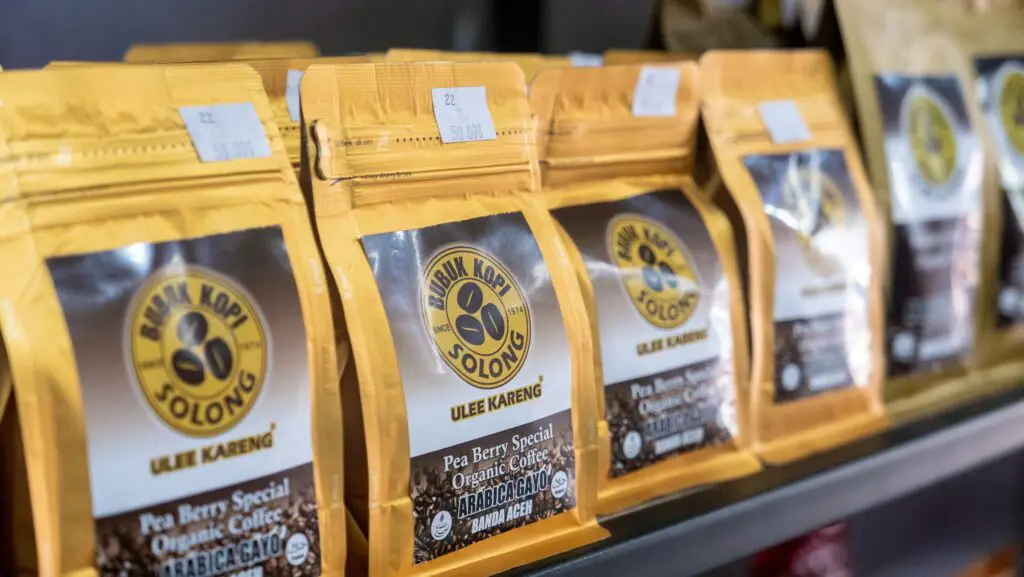
Certification and Regulation
Fair Trade is a certification system that ensures certain standards are met in the production and trade of goods, including coffee.
It involves strict guidelines for fair prices, fair labor conditions, direct trading relationships, democratic and transparent organizations, community development, and environmental sustainability.
Farmers and cooperatives that wish to be Fair Trade certified must meet these standards and pay certification fees.
This certification process helps consumers trust that the products they buy are produced under fair conditions.
Focus on Fair Prices and Labor Standards
Fair Trade guarantees minimum prices for farmers, which protects them from volatile market conditions.
This minimum price is often above the market rate and provides a safety net for farmers.
Additionally, Fair Trade focuses on fair labor standards, ensuring that workers are paid fairly and work in safe conditions.
The premiums paid by consumers for Fair Trade products are often invested back into the community, funding social, economic, and environmental development projects.
Direct Trade
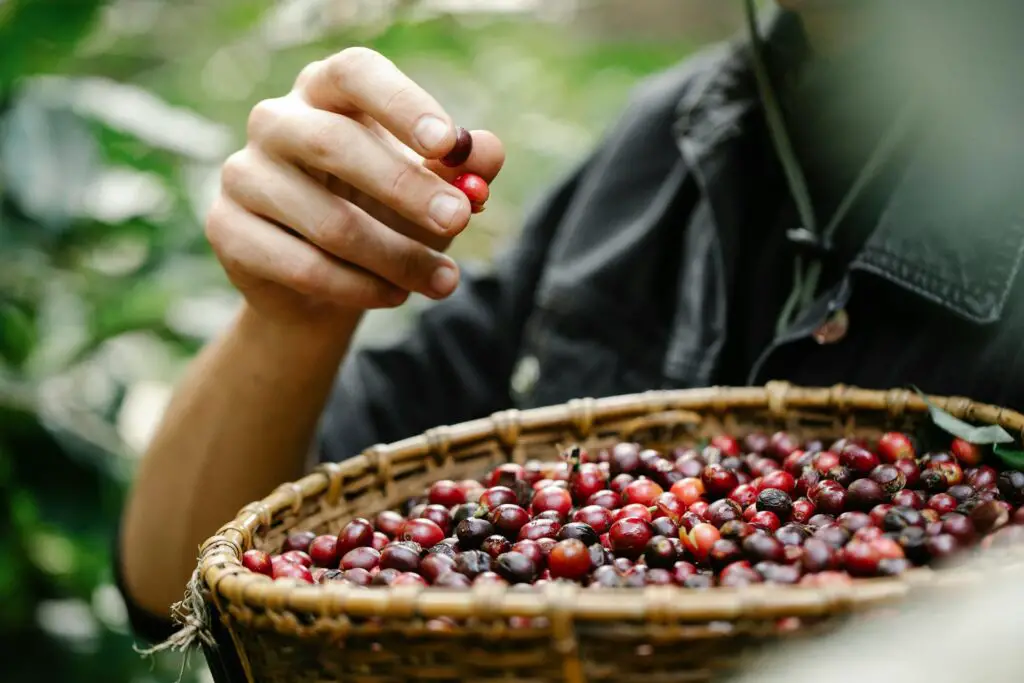
Flexibility and Lack of Formal Certification
Direct Trade does not have a formal certification process.
Instead, it emphasizes direct relationships between coffee roasters and producers.
This flexibility allows roasters to set their own standards and practices, tailored to their specific relationships and goals.
While this can lead to higher quality and more innovative practices, it also means there is no third-party verification of claims, relying instead on the transparency and integrity of the companies involved.
Emphasis on Direct Relationships and Quality Incentives
Direct Trade focuses on building long-term, mutually beneficial relationships between roasters and farmers.
By cutting out intermediaries, direct trade ensures that farmers receive higher prices for their coffee, often above Fair Trade minimums.
This approach encourages quality improvements, as farmers receive direct feedback and support from roasters.
The emphasis is on quality incentives rather than standardized fair prices, which can lead to higher quality and more unique coffee offerings.
The Process of Establishing Direct Trade Relationships

Initial Contact and Negotiations
The journey of establishing direct trade relationships begins with roasters reaching out to coffee farmers.
This initial contact is crucial as it sets the foundation for a potential partnership.
Roasters often travel to coffee-growing regions to meet farmers in person.
These face-to-face meetings allow both parties to discuss their expectations, quality standards, and the possibility of working together.
During these negotiations, transparency and trust are key.
Roasters explain their needs and preferences, while farmers share their capabilities and challenges.
Contract Agreements
Once the initial contact and negotiations are successful, the next step is drafting a contract.
These agreements outline the terms of the partnership, including price guarantees and quality standards.
Unlike conventional trade, direct trade contracts often offer prices above market rates, ensuring that farmers receive a fair and stable income.
These contracts may also include pre-financing opportunities, which provide farmers with the funds needed to produce the coffee before the actual sale.
The specifics of each contract vary, but they always aim to protect the interests of both the farmer and the roaster.
Ongoing Collaboration
Establishing a direct trade relationship is just the beginning.
To maintain and strengthen this partnership, ongoing collaboration is essential.
Roasters frequently visit farms to monitor the coffee production process and provide continuous support.
These visits allow roasters to give direct feedback on quality and suggest improvements.
This close collaboration helps in maintaining high standards and fostering a strong bond between the roaster and the farmer.
Regular communication ensures that any issues are promptly addressed, and both parties remain aligned in their goals.
Role of Importers
While direct trade emphasizes direct relationships, importers can still play a crucial role.
In cases where direct trade isn’t entirely feasible, trusted importers are used to handle logistics.
Importers provide valuable services such as quality control, transportation, and customs clearance.
They act as intermediaries who ensure that the coffee reaches the roaster in optimal condition.
Other Successful Brands Using Direct Trade

Direct trade coffee has numerous success stories that highlight the benefits of this approach.
One notable example is Alma Coffee in Honduras.
Alma Coffee has established a direct trade relationship with several smallholder farmers in the region.
By cutting out intermediaries, Alma Coffee ensures that farmers receive a higher income.
This direct connection also allows for better quality control and sustainability practices.
Several brands have also made a name for themselves by committing to direct trade practices.
One such brand is Tiny Footprint Coffee.
Known for their environmental responsibility, Tiny Footprint Coffee sources beans directly from farmers who practice sustainable farming.
This ensures that their coffee is not only high-quality but also environmentally friendly.
Another standout brand is Nossa Familia Roasters.
Based in Portland, Oregon, Nossa Familia Roasters has built strong, lasting relationships with coffee-growing families in Latin America.
How to Identify and Support Direct Trade Coffee
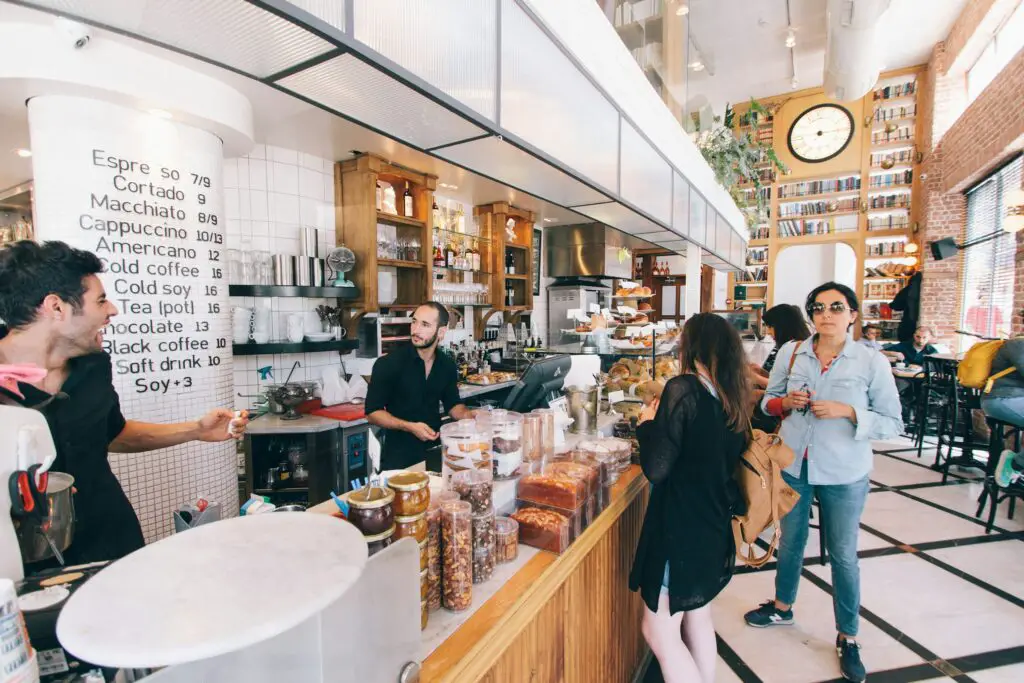
Tips for Consumers
To ensure you are truly supporting direct trade coffee, it’s important to verify the claims made by coffee brands.
Start by looking for detailed information about their sourcing practices on their websites.
Many direct trade companies will proudly display their relationships with farmers and provide specifics about the farms they work with.
Ask your roasters directly about their sourcing practices.
Questions such as, “Can you tell me about the farms you source your beans from?” or “How do you ensure fair compensation for the farmers?” can provide valuable insights.
Genuine direct trade roasters will be transparent and happy to share these details with you.
Supporting Ethical and Sustainable Coffee
Your choices as a consumer have a significant impact on the coffee industry.
By supporting brands that practice direct trade, you help ensure that farmers receive fair compensation and can invest in sustainable farming practices.
This not only improves the quality of the coffee you enjoy but also promotes environmental responsibility and social equity in coffee-producing regions.
Conclusion
Direct trade coffee offers numerous benefits, including better compensation for farmers, higher quality coffee, and stronger relationships between growers and roasters.
However, it also comes with challenges like market volatility and logistical complexities.
By choosing direct trade coffee, you support ethical practices and enjoy a superior product.
Your purchase helps create a more sustainable and fair coffee industry, benefiting both farmers and consumers.
FAQ’s
What are the benefits of direct trade coffee?
For farmers, it ensures higher and more stable incomes, allowing them to invest in their farms and communities.
Roasters benefit from access to unique and high-quality coffee beans, enhancing their control over the production process.
Consumers enjoy the assurance of ethical sourcing and higher quality, diverse coffee options.
How can consumers identify direct trade coffee?
Ask roasters about their direct relationships with farmers and how they ensure fair compensation and quality.
Look for detailed information on packaging and company websites about their direct trade initiatives.
Who started Direct Trade Coffee?
Direct trade coffee was pioneered by companies like Intelligentsia, Stumptown Coffee Roasters, and Counter Culture Coffee.
These companies established direct relationships with coffee farmers, setting the standard for ethical sourcing and quality control.
What does direct trade mean in coffee?
Direct trade in coffee refers to a sourcing practice where roasters purchase coffee directly from farmers, bypassing traditional middlemen.
This approach emphasizes transparency, fair compensation, and high-quality standards, fostering direct relationships and mutual benefits for both parties.


